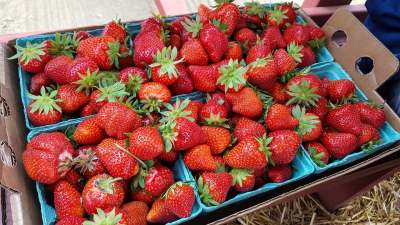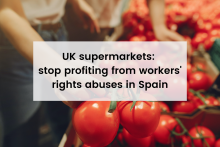For the past three years, Ethical Consumer has been campaigning against the exploitation of farm workers in southern Spain who are crucial for the supply of soft fruit and vegetables to supermarkets across Europe and the UK.
However, it’s not just the farm workers who are paying the price for our demand for year-round fruit and veg as the environment is picking up the tab too.
South west Spain is now the epicentre for the booming strawberry sector and is the biggest supplier of strawberries in Europe, accounting for around 20% of the strawberries bought in the UK.
The problem is that many strawberry farms have been built illegally on former forested land and, with southern Spain increasingly experiencing severe droughts, many of these illegal farms are also illegally pumping groundwater to irrigate their strawberries.
The bad news is that many of these farms have sprung up next door to Doñana National Park, one of the most important wetland refuges for wildlife in Europe and a crucial refuelling point for millions of migratory birds between Europe and Africa.
With strawberry production now booming, the underground water supplies that sustain Doñana are being over-exploited with catastrophic results. Despite being the most protected national park in Europe, as well as being a UN World Heritage site, Doñana is now being pumped dry and its future is under threat.








